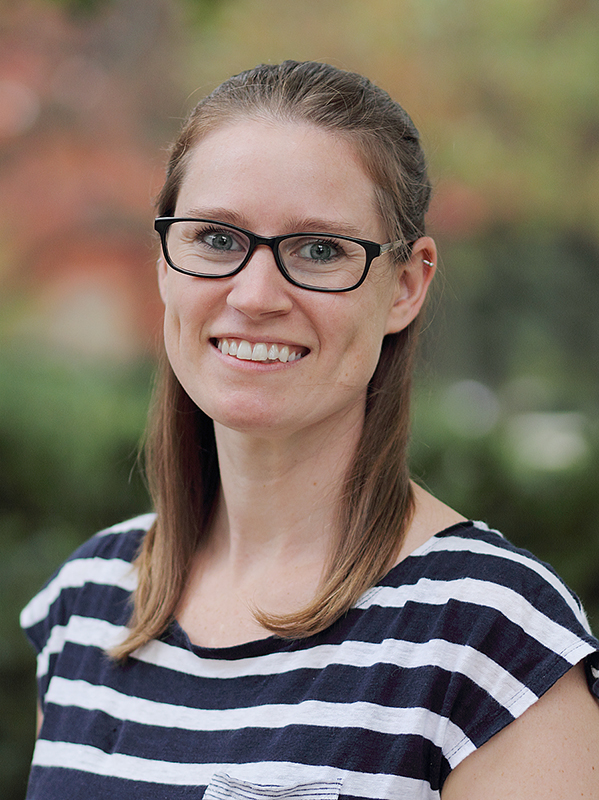February 27, 2020
Parents: Developing strategies for communication, independence is key for adolescents, relationship
 A new study looking at parent-adolescent relationships and substance use shows traditional parenting techniques might not be the best way to address issues. (Photo: Eliott Reyna/Unsplash)
Download image
A new study looking at parent-adolescent relationships and substance use shows traditional parenting techniques might not be the best way to address issues. (Photo: Eliott Reyna/Unsplash)
Download image
WEST LAFAYETTE, Ind. — Stricter curfews, monitoring friends and whereabouts, restrictions on smartphone and social media are traditional parental responses for misbehaving adolescents.
But a new study, which appeared in Prevention Science, exploring parent-adolescent relationships and substance use, shows traditional techniques could backfire when used too much.
Researchers found many aspects about child disclosure – where the child willingly provides information to parents – in line with other research, but that too much consistency over time in the ways parents and adolescents communicate was associated with worse substance use outcomes.
 Kristine Marceau, an assistant professor in Purdue University’s College of Health and Human Sciences’ Department of Human Development and Family Studies. (Purdue University photo)
Download image
Kristine Marceau, an assistant professor in Purdue University’s College of Health and Human Sciences’ Department of Human Development and Family Studies. (Purdue University photo)
Download image
“Consistent, high levels of parental solicitation – gathering information from their child – and parental control of their child may be less effective because the adolescent could view parents as too restrictive and not respecting their changing autonomy,” said Kristine Marceau, assistant professor in the Department of Human Development and Family Studies of Purdue University’s College of Health and Human Sciences.
While some may lament the loss of age-old parenting techniques, Marceau offers a different take and says parents can be adaptable and more responsive in addressing particular or event-specific behaviors, which could be more beneficial to both the parent and the adolescent.
“It opens the door for a new view on parenting techniques and child responses, especially when it comes to substance use during the adolescent years,” Marceau said. “In fact, prevention efforts trying to increase the levels and consistency of how parents monitor their child could backfire, at least in terms of adolescent substance use.”
Marceau said most of the change in parental knowledge was in the form of the year-to-year changes in the child, including the group of friends they hang out with. “An example of year-to-year change would be a child who is exploring new friend groups and starts to hang out with the ‘wrong crowd,’ only to find out the next year they prefer a lower risk friend group or they choose to spend more time in organized activities,” Marceau said.
“Kids who don't hide anything from their parents tend to do so consistently across adolescence and also don't engage in substance use early,” Marceau said.
The study surveyed 1,023 adolescents who were in sixth to eighth grades over a period of three years. The teens were surveyed twice a year throughout the study, giving researches a look into their lives even into high school. The range allowed researchers to capture most of the period of risk for early onset substance use.
Parents were assessed four times over the course of the study. Parents were asked about how much the adolescent tells parents of his/her activities; how much they ask about adolescent activities; and how much they control the activities and schedule of their child.
The study was authored by Marceau, Nayantara Nair, graduate student in Purdue’s Department of Human Development and Family Studies; and Michelle L. Rogers and Kristina M. Jackson, both of Brown University. Funding for the research came from the National Institute on Drug Abuse (K01 DA039288) and the National Institute on Alcohol Abuse and Alcoholism (K02 AA13938).
About Purdue University
Purdue University is a top public research institution developing practical solutions to today’s toughest challenges. Ranked the No. 6 Most Innovative University in the United States by U.S. News & World Report, Purdue delivers world-changing research and out-of-this-world discovery. Committed to hands-on and online, real-world learning, Purdue offers a transformative education to all. Committed to affordability and accessibility, Purdue has frozen tuition and most fees at 2012-13 levels, enabling more students than ever to graduate debt-free. See how Purdue never stops in the persistent pursuit of the next giant leap at purdue.edu.
Writer: Matthew Oates, 765-496-2571, oatesw@purdue.edu, @mo_oates
Source: Kristine Marceau, KristineMarceau@purdue.edu
Related releases:
Poor sleep is unlikely to contribute to higher BMI in children
The science of puberty, understanding a critical period of biological and social development
Early puberty in white adolescent boys increases substance use risk
Note to journalists: For a copy of the study, please contact Matthew Oates, Purdue News Service, at oatesw@purdue.edu. A photograph of the scientist and artwork are available for journalists to use via a Google Drive at https://purdue.university/2ViSOmZ.
ABSTRACT
Lability in Parent- and Child-Based Sources of Parental Monitoring Is Differentially Associated with Adolescent Substance Use
Kristine Marceau, Nayantara Nair, Michelle L. Rogers and Kristina M. Jackson
Parental knowledge about adolescents’ whereabouts and activities remains one of the strongest predictors of reduced adolescent substance use. A recent study found that across middle childhood and adolescence, parental knowledge is characterized by fluctuations on a year-to-year basis, termed lability, even more-so than by linear trends, and that lability too is a predictor of adolescent substance use (Lippold et al., Dev. Psychol. 17, 274–283, 2016). The present study replicates Lippold et al. (Dev. Psychol. 17, 274–283, 2016) by quantifying developmental change and lability in parental knowledge across adolescence and examining associations with drinking, smoking, and other drug use later in adolescence, and extends the study by examining the sources of knowledge: child disclosure, parental solicitation, and parental control, separately. Using a community-based sample of 1023 youth in the Northeastern region of the USA, all three sources of knowledge were characterized by developmental change and lability. In general, higher levels and steeper developmental declines in knowledge were associated with substance use outcomes. Findings for child disclosure replicated the prior findings: increased lability of child disclosure predicted substance use. Unexpectedly, decreased lability of parental solicitation and control was associated with worse substance use outcomes. Findings suggest different mechanisms by which lability in child- and parent-driven cultivation of knowledge is associated with substance use. If replicated in studies that address causality, these mechanisms could be leveraged for prevention/intervention efforts. For example, increasing the consistency of child disclosure may help prevent substance use, but teaching parents to be more responsive to time-specific challenges with adolescents may be more effective than increasing the consistency of parents’ knowledge-building parenting behaviors.

